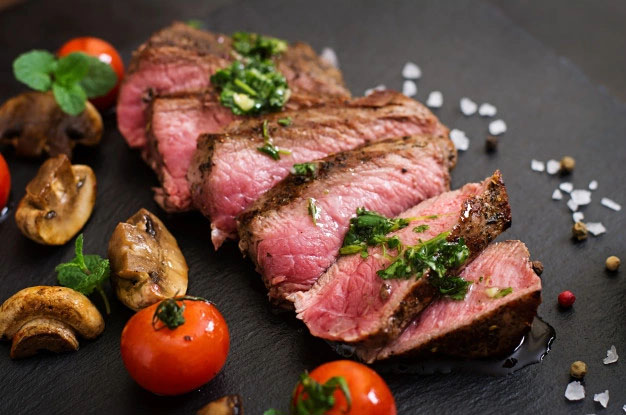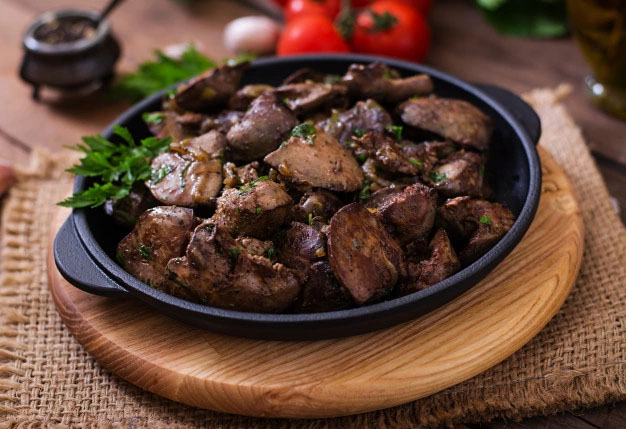What Are The Foods Rich In Vitamin B12?
January 29, 2022 | by Sravani Pathakamuri | Posted in B vitamins, Vitamins
Vitamin B12 is a water-soluble vitamin that is essential for the formation of normal functioning of the brain and nervous system, red blood cells and the production of DNA, which in turn contributes to cellular metabolism. It also helps to maintain healthy skin, hair, and nails. Vitamin B12 deficiency can lead to anemia, fatigue, and difficulty concentrating.
The scientific name for Vitamin B12 is cobalamin. Our body can’t make vitamin B12 on its own, so you need to get it from your diet or from supplements.
What is Vitamin B12 deficiency?
Vitamin B12 deficiency is a condition that can cause a variety of symptoms, including fatigue, heart palpitations, and lack of appetite.
A deficiency in Vitamin B12 may lead to a number of problems including increased risk for cardiovascular disease, increased risk for dementia, anemia, depression, fatigue.
People who are at risk of vitamin B12 deficiency include pregnant women, those with gastrointestinal issues such as Crohn’s disease or celiac disease, those with alcoholism, and those who have had weight-loss surgery.
Vitamin B12 is a water-soluble vitamin that is naturally present in animal products such as meat, eggs, and dairy products. It is also available as a supplement or in fortified foods.
The Recommended Dietary Allowance (RDA) for Vitamin B12 according to the National Institutes of Health is 2.4 micrograms per day for adults over the age of 14.
Pregnant and lactating women need to take vitamin B12 slightly higher than normal. i.e., 2.8 mcg per day.
How about absorption and storage of Vitamin B12?
The absorption of Vitamin B12 depends on several factors such as age and health status. For example, it takes longer for elderly people to absorb Vitamin B12 due to changes in their stomach lining. Vitamin B12 is absorbed in your stomach with the help of a protein called intrinsic factor. This substance binds to the vitamin B12 molecule and helps your blood and cells absorb it.
Excess vitamin B12 is stored in your liver and can be stored for three to five years. If you consume more than the RDI, your body saves it for future use.
The intrinsic factor of protein is an enzyme that is needed for the absorption of some proteins. It breaks down the protein so it can be absorbed by the small intestine.
Intrinsic factor is made up of three parts:
1) Intrinsic factor, which is a glycoprotein
2) Vitamin B12, which helps to break down the protein, is bound by haptocorrin.
3) Haptocorrin protects vitamin B12 from stomach acid in case it is not consumed with food. Without this protection, the vitamin will be destroyed in the acidic stomach environment.
What is Pernicious anemia?
Pernicious anemia is a form of anemia that is caused by Vitamin B12 deficiency.
Pernicious anemia can be detected by the symptoms it causes, such as fatigue, weakness, irritability, and sore tongue. However, it can be difficult to diagnose because the symptoms are similar to other medical conditions.
The most common cause of pernicious anemia is a lack of intrinsic factor in the stomach which leads to poor absorption of vitamin B12 from food. This lack could also be caused by other conditions such as gastric surgery or ileostomy (a surgery that creates an opening from the large intestine).
What are the good sources of vitamin B 12?
Vitamin B12 is a water-soluble vitamin that can be found in many animal products, such as meat, fish, and dairy.
Some foods are fortified with vitamin B12, including some breakfast cereals, yeast extract spreads, soy milk, and some brands of nutritional yeast.
Good sources of vitamin B12 include:
- Red meat
- Fish (Halibut)
- Shellfish (Clams)
- Liver
- Canned fish (Sardines)
- Eggs
- Nutritional yeast
- Milk
- Yogurt
- Fortified cereals
1. Salmon fish:

85 grams of cooked salmon = 4 mcg of Vitamin b12.
Salmon is a type of fish that has a high protein content and can be cooked in many different ways. Salmon is low in mercury and contains high levels of Omega-3 fatty acids which are beneficial to your health.
A 3-ounce or 85 grams serving of smoked salmon provides about 25 grams of protein, which is more than twice the amount found in an egg or chicken breast, and also provides 2 grams of Omega-3 fatty acids per serving (about the same as an avocado).
The salmon fish is a popular fish that is found in the Pacific and Atlantic oceans. It has a lot of health benefits and contains many nutrients. The fish is an excellent source for vitamin B12, which helps with the production of red blood cells and DNA. The b12 content in salmon fish can be as high as 3100% of your daily value, which makes it an excellent source for this nutrient.
The vitamin b12 content in salmon fish also has been linked to a reduced risk of heart disease, stroke, dementia, Alzheimer’s disease and depression. The omega-3 fatty acids found in the salmon are also important for brain development and function. Salmon also provides omega-3 fatty acids that help reduce inflammation throughout the body.
2. Beef

Vitamin B12 is important for red blood cells and nerve cells. It helps the body to make DNA and RNA, which are the building blocks of our bodies.
Beef is a good source of protein, vitamin B12, riboflavin, iron, zinc and selenium. It also contains other nutrients such as niacin and choline. The amount of these nutrients varies depending on the cut of beef.
Beef is an excellent source of protein. Protein is essential for growth and repair in the body. It also provides energy to the body by releasing energy slowly over time instead of quickly like carbohydrates do. Beef has all nine essential amino acids that humans need to consume in order to function properly, making it a very good source of protein for those who are vegan or vegetarian.
Beef is a good source of vitamin B12. The recommended dietary allowance (RDA) for this vitamin is 2.4 mcg per day for adults, but it can be difficult to get the necessary amount from food alone.
3. Milk

Milk is often considered to be a staple of the American diet. It is recommended that children drink milk for calcium and vitamin D, and adults drink it for calcium, vitamin D, protein, and other nutrients.
Some studies showed that drinking 2 cups of milk every day for a week reduced vitamin B12 deficiency.
One cup of buffalo milk contains 0.88 mcg of B12, which is less than cow’s milk (2.4 mcg/day).
Cheese is also a rich source of vitamin B12. One large slice (22 grams) of Swiss cheese contains about 0.9 µg.
4. Eggs

Eating eggs can be a great way to get vitamin b12. Eggs are also a good source of protein, healthy fats, selenium, choline and other nutrients.
Some studies showed eggs contain only 9% of vitamin b12, when compared to other animal products.
Eating eggs everyday provides significant amount of vitamin b12. 100 grams of eggs (2 eggs) contains about 1.1 µg of vitamin b12.
5. Animal liver and kidney (organ meat)

Organ meat nutrition is an important aspect of a healthy diet. It is rich in iron, vitamin B12, and other minerals. However, not everyone is willing to eat organ meats.
Especially, lamb liver and kidney contains high amounts of vitamin B12. 3 ounce of cooked lamb contains 2.2 µg of vitamin b12.
Summary
Vitamin B12 is a water-soluble vitamin that is essential for the normal functioning of the brain and nervous system, and for the formation of blood. It is also needed for DNA synthesis, healthy metabolism, and to make red blood cells.
The best sources of vitamin B12 are animal products like meat (especially liver), fish, eggs, milk and dairy products. However, vegans can get their daily dose from fortified cereals, soy milk or nutritional yeast.